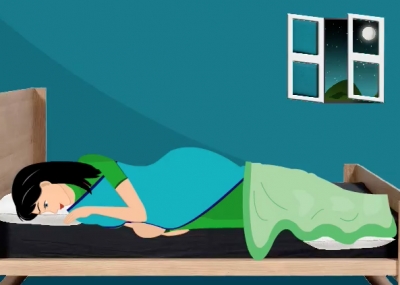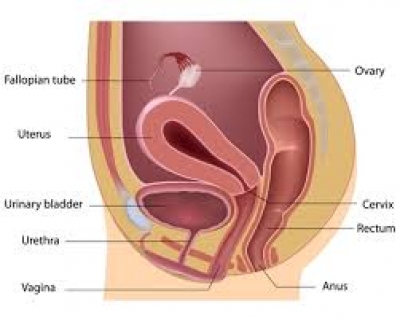It rises each month during the second half of the menstrual cycle, after ovulation, that is to say, about seven days before your period. Progesterone causes the uterine lining to secrete special proteins and thickens the uterine lining and prepares it for an implanted fertilized egg. If the lining isn't thick enough, implantation won't happen. If there is no fertilization and if the implantation does not happen then, the estrogen and progesterone levels drop. The uterine lining breaks down, and this causes periods or bleeding. But, if implantation happens and one gets pregnant, progesterone is produced in the placenta and the levels remain high during pregnancy. The combined high estrogen and progesterone levels suppress ovulation i.e release of another egg, during pregnancy. Progesterone also promotes the growth of milk-producing glands in the breast during pregnancy. Progesterone levels depend on a person's age and gender. In women, The levels can fluctuate based on the timing of her menstrual cycle and whether she's pregnant.
Causes for Low progesterone levels
- If pregnant and if, the progesterone levels are low, then it could be a sign of an impending miscarriage. Progesterone is needed to maintain uterus until the birth of the baby.
- Ovulation or ovary problems
- During Menopause
What are some of the symptoms of low progesterone symptoms
In Non-pregnant women, some symptoms of low progesterone include:
- Low libido
- Hot flashes
- Migraines or headaches
- Depression, anxiety or other mood changes
- Menstrual cycle irregularity or absence
Symptoms of low progesterone levels in pregnant women include:
- Spotting
- Abdominal pain
- Frequent low blood sugar
- Regularly tender breasts
- Constant fatigue
- Vaginal dryness
Progesterone and estrogen hormones are said to complement one another. So, in the case of decreased progesterone levels, estrogen may begin to dominate. And that can lead to symptoms such as:
- Depression, mood swings or low libido
- Weight gain
- Heavy bleeding
- Irregular menstrual cycle
- Premenstrual syndrome
- Breast tenderness
Diagnosis
A simple blood test— progesterone test—can help the doctor to assess if progesterone levels are too low. It can help to figure out infertility in some women. It helps to confirm ovulation
Treatment
If one is trying to conceive, hormone therapy can help increase progesterone and thicken uterine lining. That may improve chances of conception. If low progesterone levels are causing severe menopause symptoms, hormone therapy will likely be a combination of progesterone and estrogen.
Natural remedies to boost low progesterone levels include
Increasing the intake of vitamins B and C, which help maintain progesterone levels
Regulating stress levels as cortisol is usually released during stress and this, in turn, can cause reduced progesterone levels)
[quix id='8' name='About our Pregnancy Blogs and Videos']






